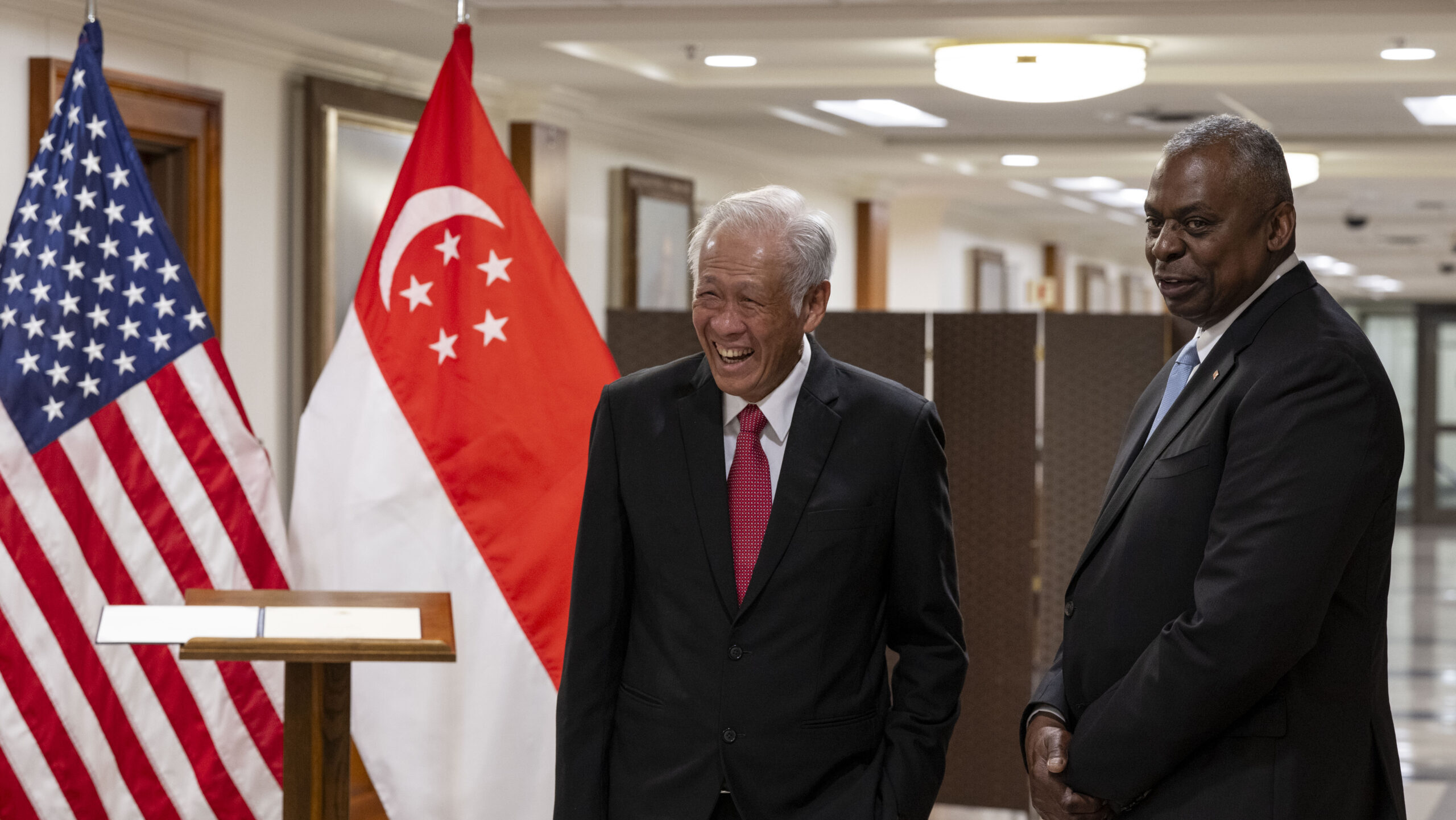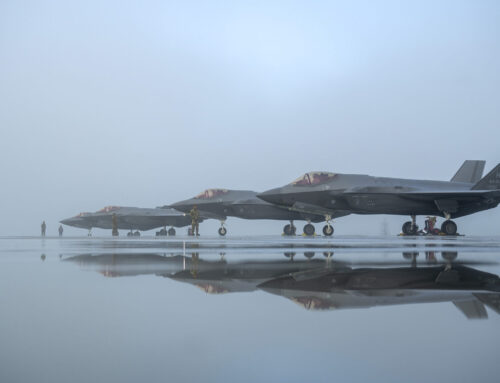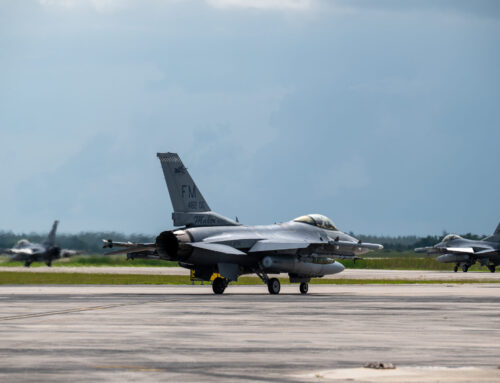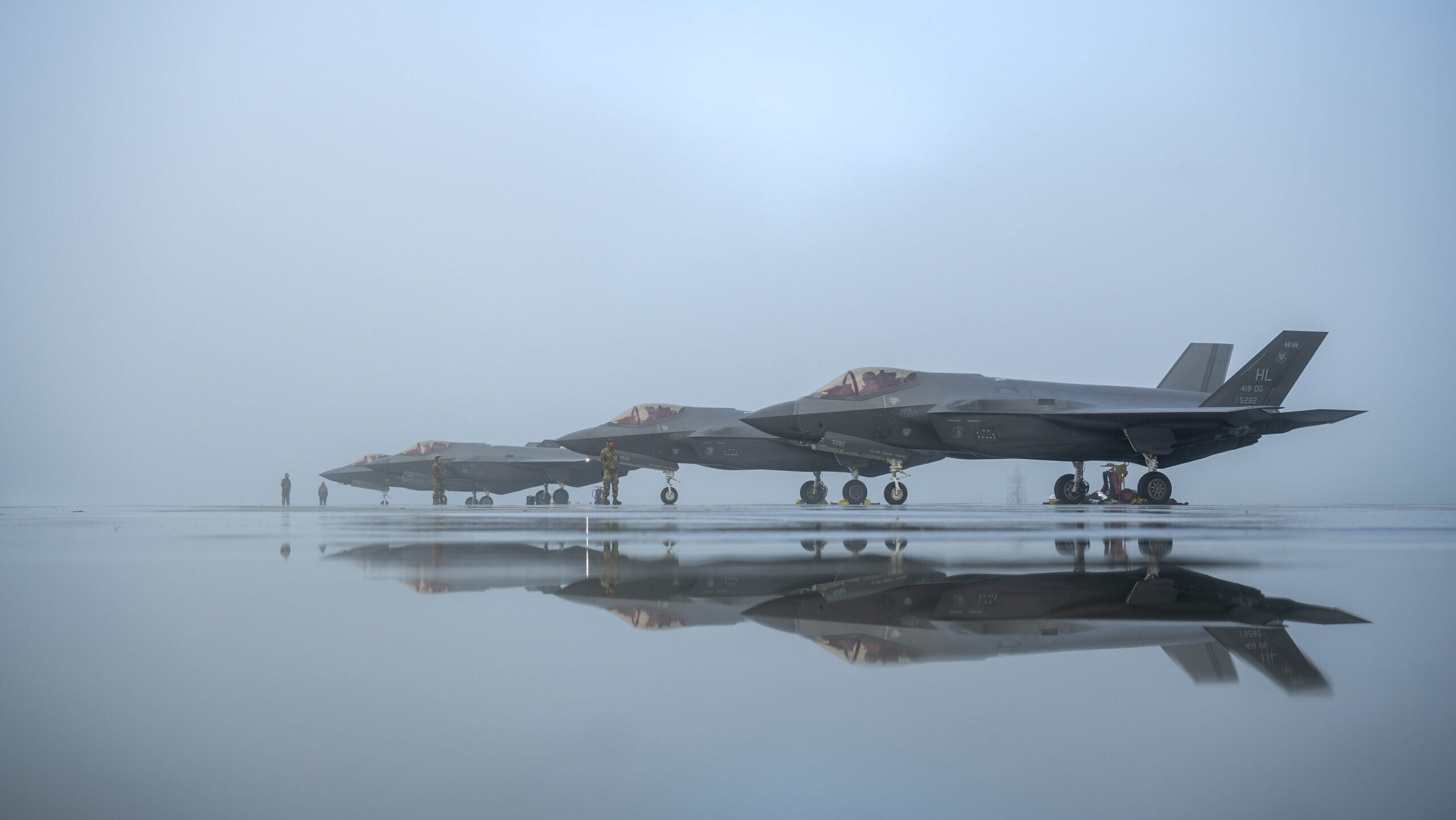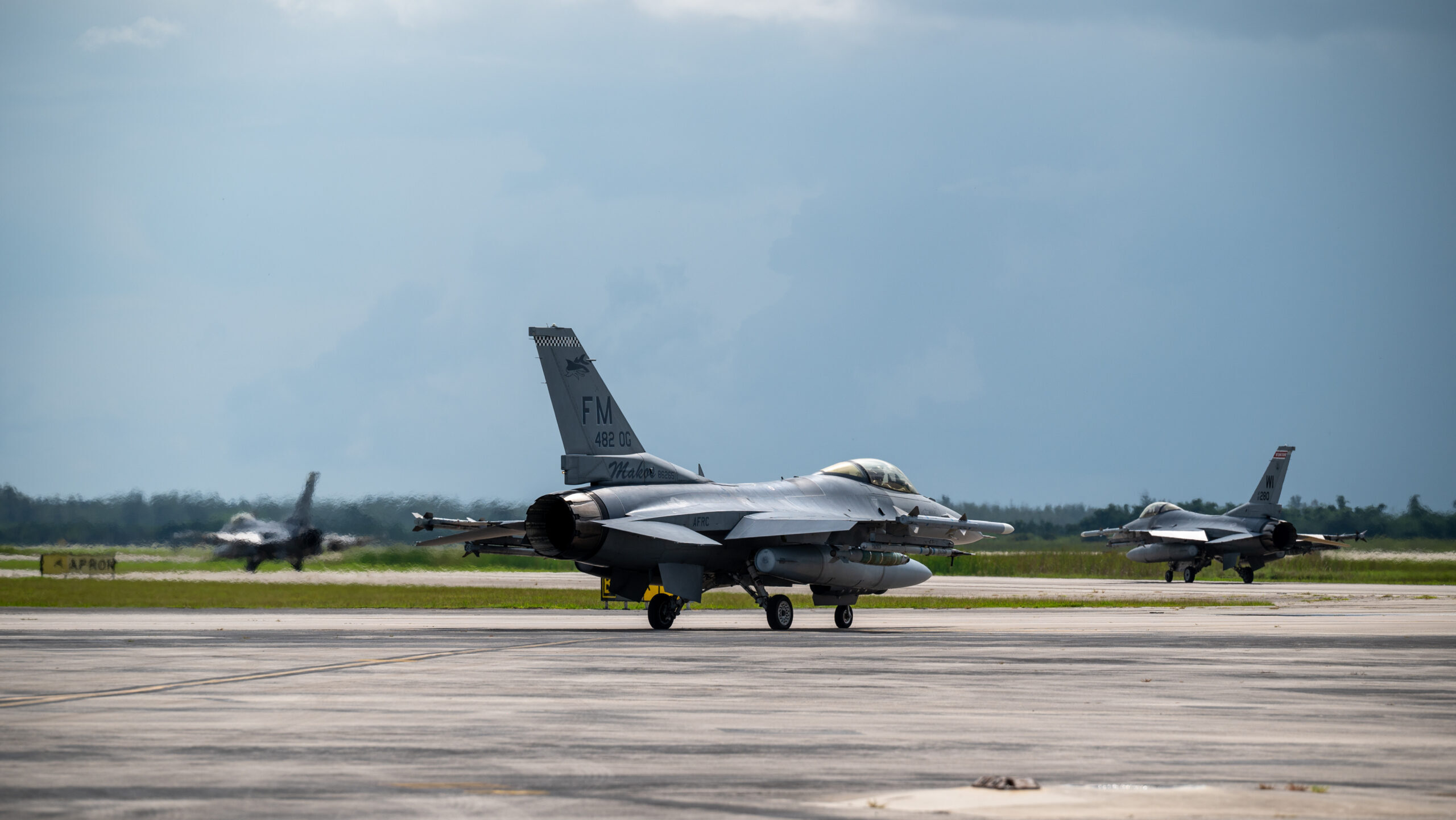Secretary of Defense Lloyd J. Austin III speaks with Singapore Minister for Defense Ng Eng Hen prior to a bilateral exchange at the Pentagon, Washington, D.C., July 15, 2024. (DoD photo by U.S. Navy Petty Officer 1st Class Alexander Kubitza)
WASHINGTON — As the US military seeks cost-effective ways to combat the threat of drones on land and at sea, the Defense Innovation Unit (DIU) and the Singaporean Ministry of Defence announced this week they are hosting a 12-week initiative to find “novel” unmanned aerial vehicle communications systems to help ships close to shore track and disrupt “unauthorized drones.”
“We are proud to contribute to the strategically important effort to deepen bilateral cooperation with Singapore in support of a free and open Indo-Pacific and look forward to working with our Singaporean partners to deliver concrete solutions that address the pressing security challenge of unauthorized drones, as well as critical support for humanitarian assistance and disaster relief,” DIU Director Doug Beck said in a Thursday press release.
“We are eager to see what the international innovation base — starting with the great technology in Singapore and the US — delivers in support of these important missions.”
Not just any company can participate in this challenge though; companies have to be characterized as an early-mid-stage company or a non-traditional company, according to the press release. Additionally, the companies either have to be US-owned and -operated, from a NATO country, from the Five Eyes Alliance, part of the US-Mexico-Canada Agreement, or part of the Trans-Pacific Partnership.
This is the first official collaboration between the DIU and Singapore to come out of a Memorandum of Understanding for Defense Cooperation, according to the press release. The memorandum was signed at the end of May by Defense Secretary Lloyd Austin and Singaporean Minister for Defence Ng Eng He based on the agreement that both nations would dedicate resources to shipboard counter-unmanned aircraft systems and electromagnetic interference resilience.
The May agreement preceded another signed in July between the two nations to boost their artificial intelligence ties. However, that agreement came mere days after Singapore signed a similar agreement on civilian artificial intelligence with China.
“The agreement [with the US] is a next step in Singapore-US security cooperation, and supports the relationship in addressing an evolving issue of common concern,” Ian Chong, associate professor at the National University of Singapore and an expert on the Chinese military, told Breaking Defense in July following the AI agreement. “Singapore, however, will have to somehow deconflict cooperation with the United States with the digital and cyber cooperation programs it also has with the PRC.”
Regarding the new DIU-Singapore initiative, companies have until Oct. 30 to participate in the challenge, and, according to the press release, the winner will receive part of the $300,000 prize pool.


